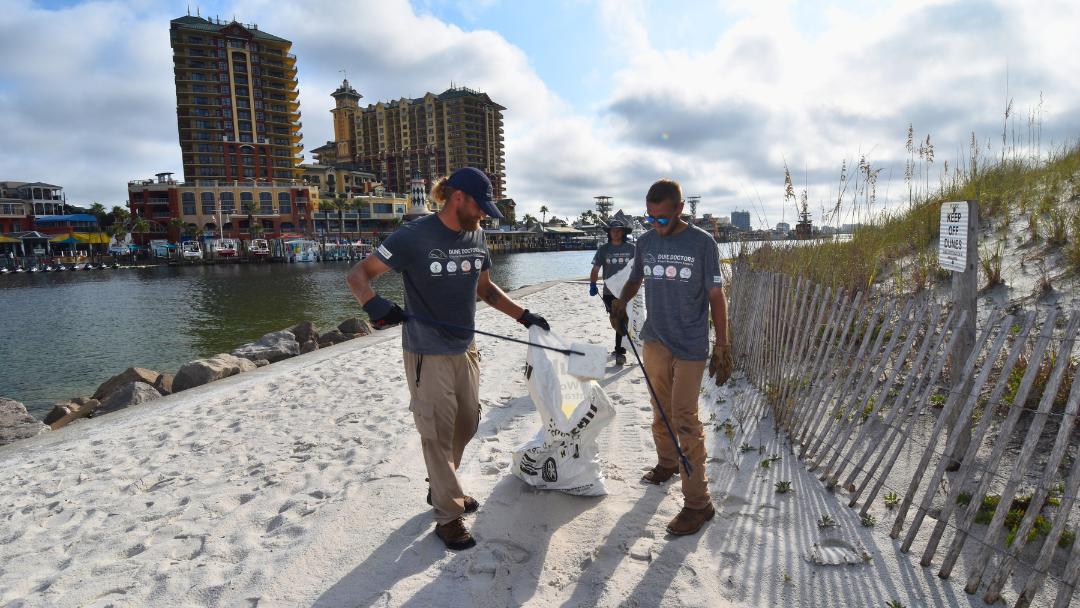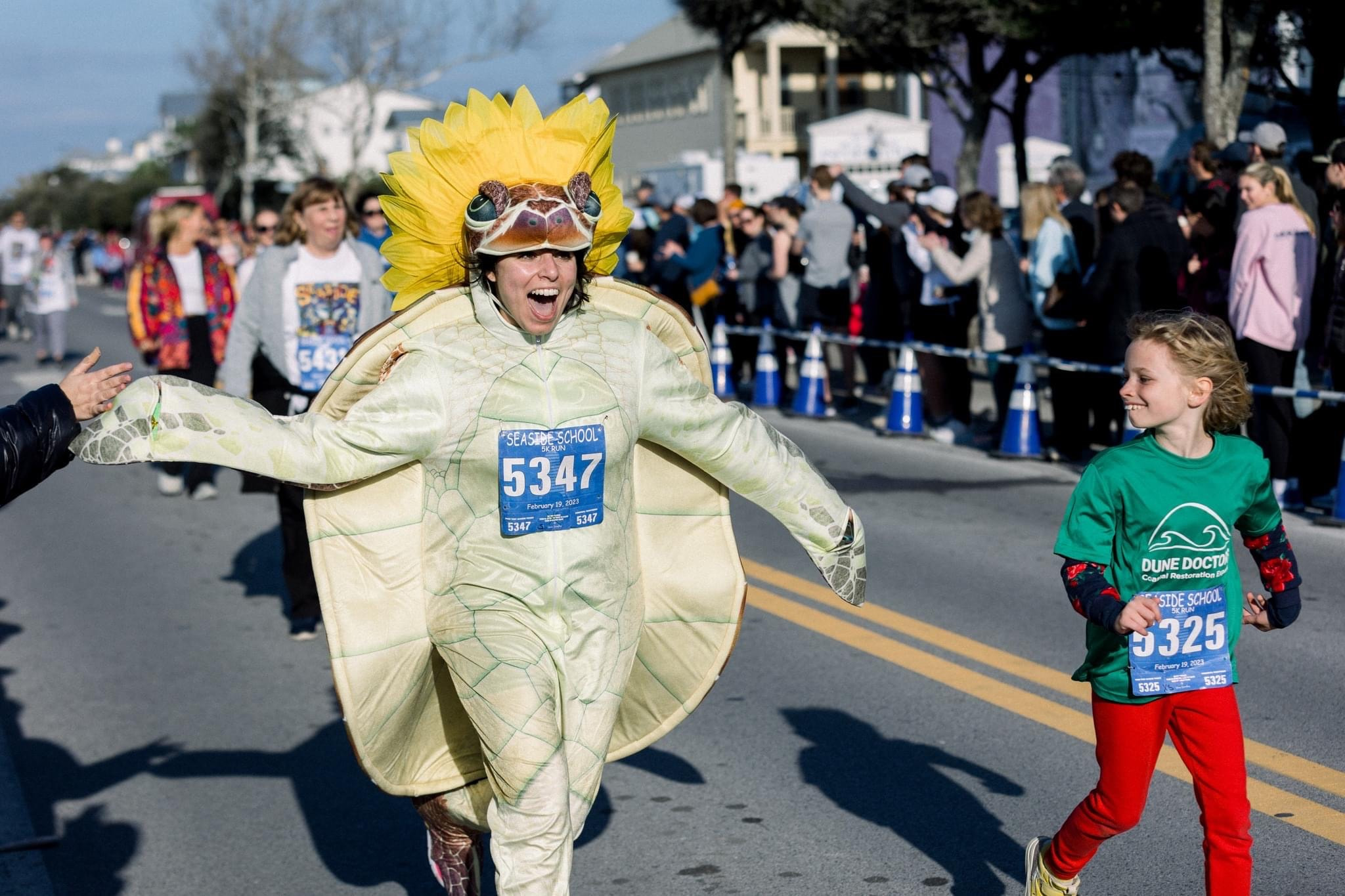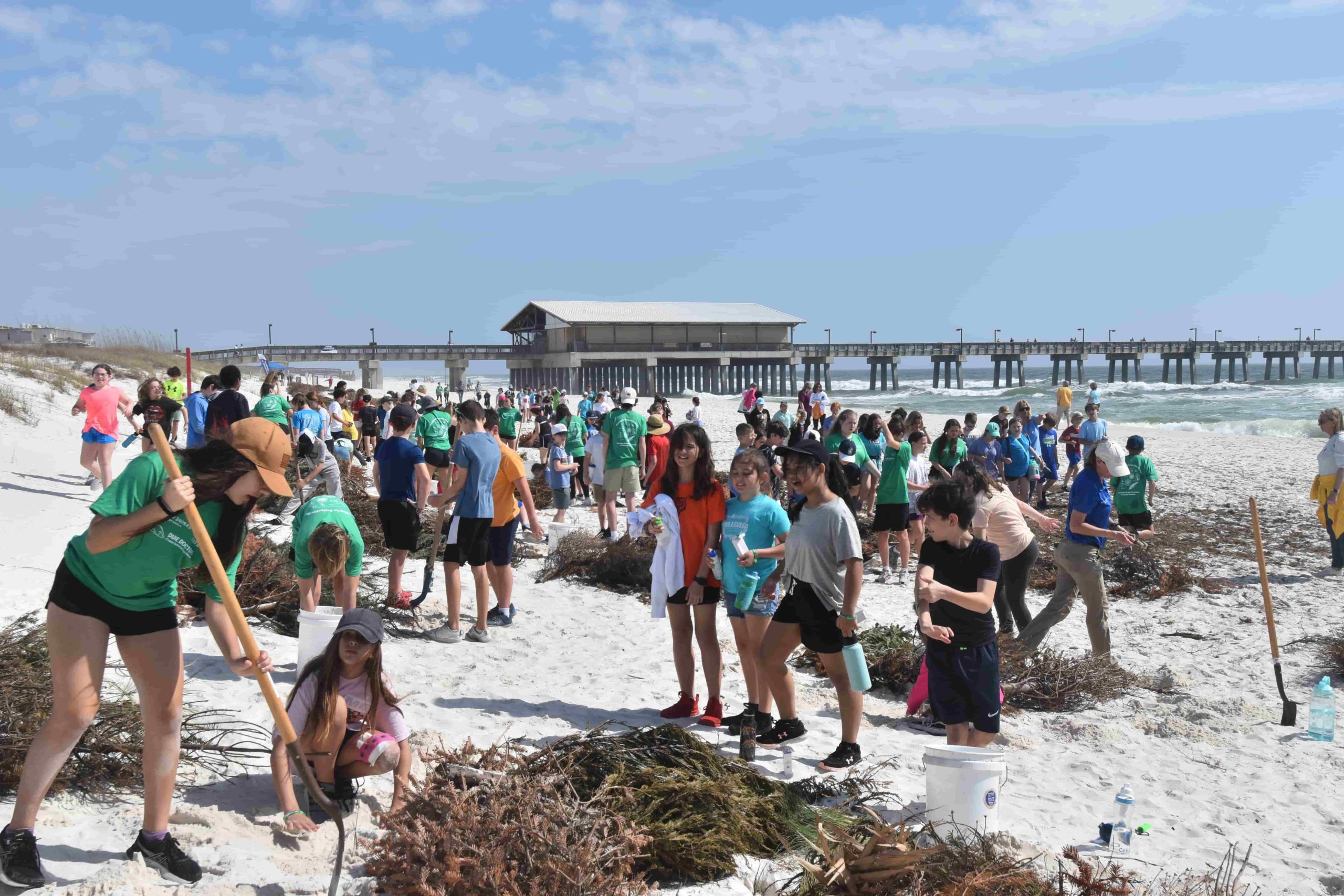On a sunny Thursday morning, the dune mice that live to the west of the Gulf State Park Pier woke up to a crew of 200 Gulf Shores City School students ready to expand their habitat. In record time, the motivated volunteers installed 3,000 sea oats along a quarter-mile stretch of beach. Their goal was to initiate the development of new coastal dunes.
“The students accomplished in two hours what would typically be a multi-day event for park staff and volunteers,” says Kelly Reetz the Natural Resource Planner at the Gulf State Park. The student volunteers participated in the restoration through an educational initiative called Planting for Protection. Designed by Dune Doctors to promote coastal resiliency, Planting for Protection combines hands-on dune restoration with nature-based learning.
Under the guidance of professionals from Dune Doctors, the Gulf State Park, and Alabama Fish and Wildlife, 30 Planting for Protection Mentors from Gulf Shores High and Middle School mobilized 166 fifth graders to lay the foundation for a field of new dunes.
The school’s robust Sustainability Academy has incorporated the event into their winter curriculum, engaging elementary, middle, and high school students.
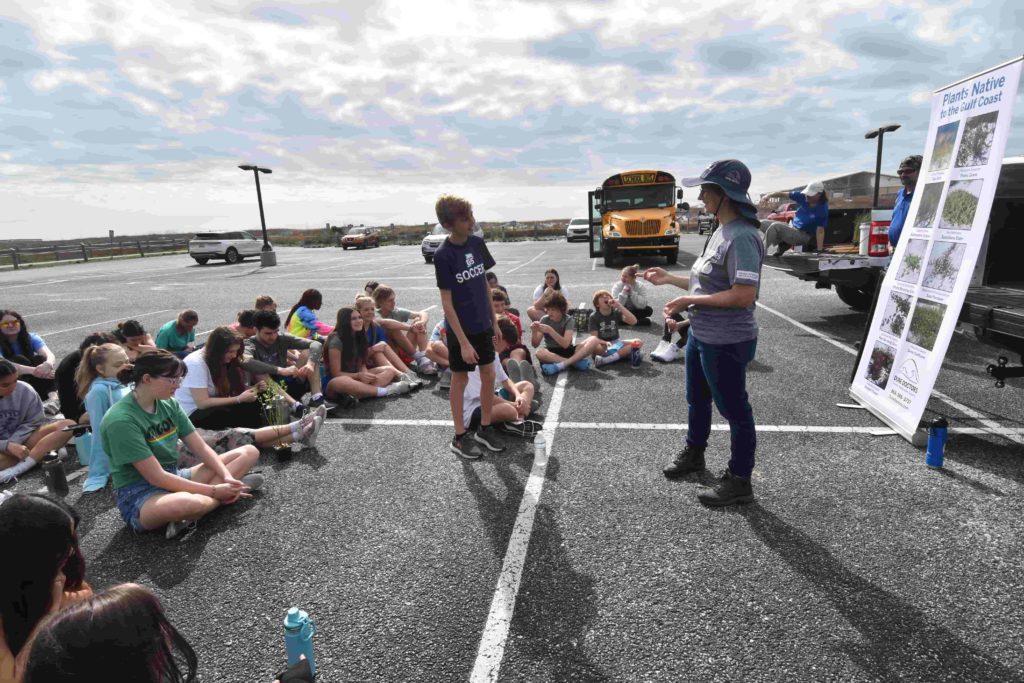
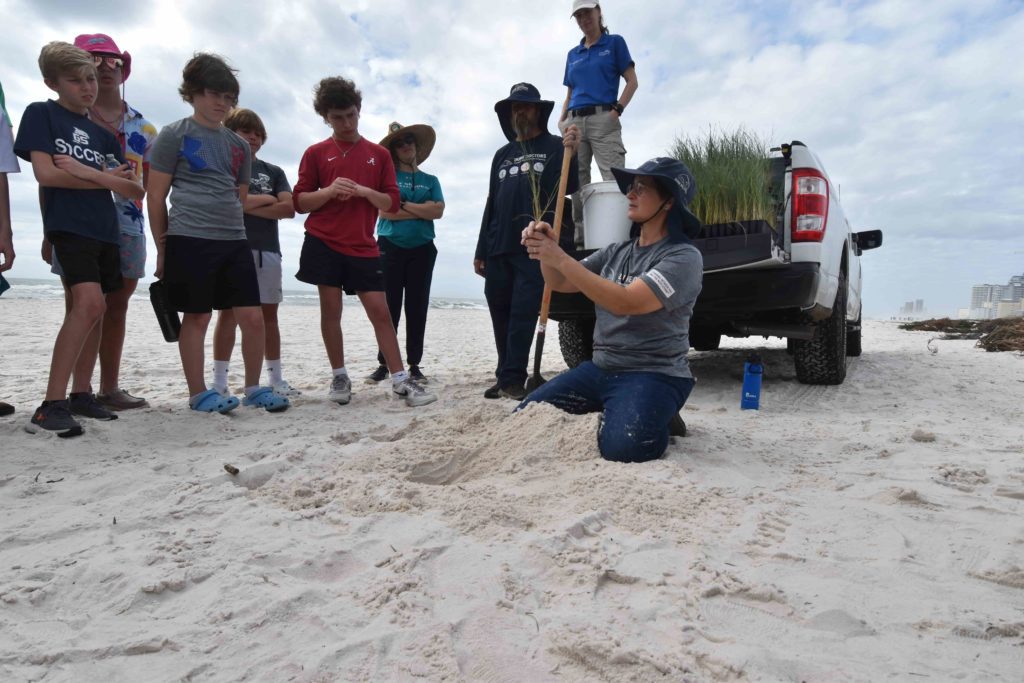
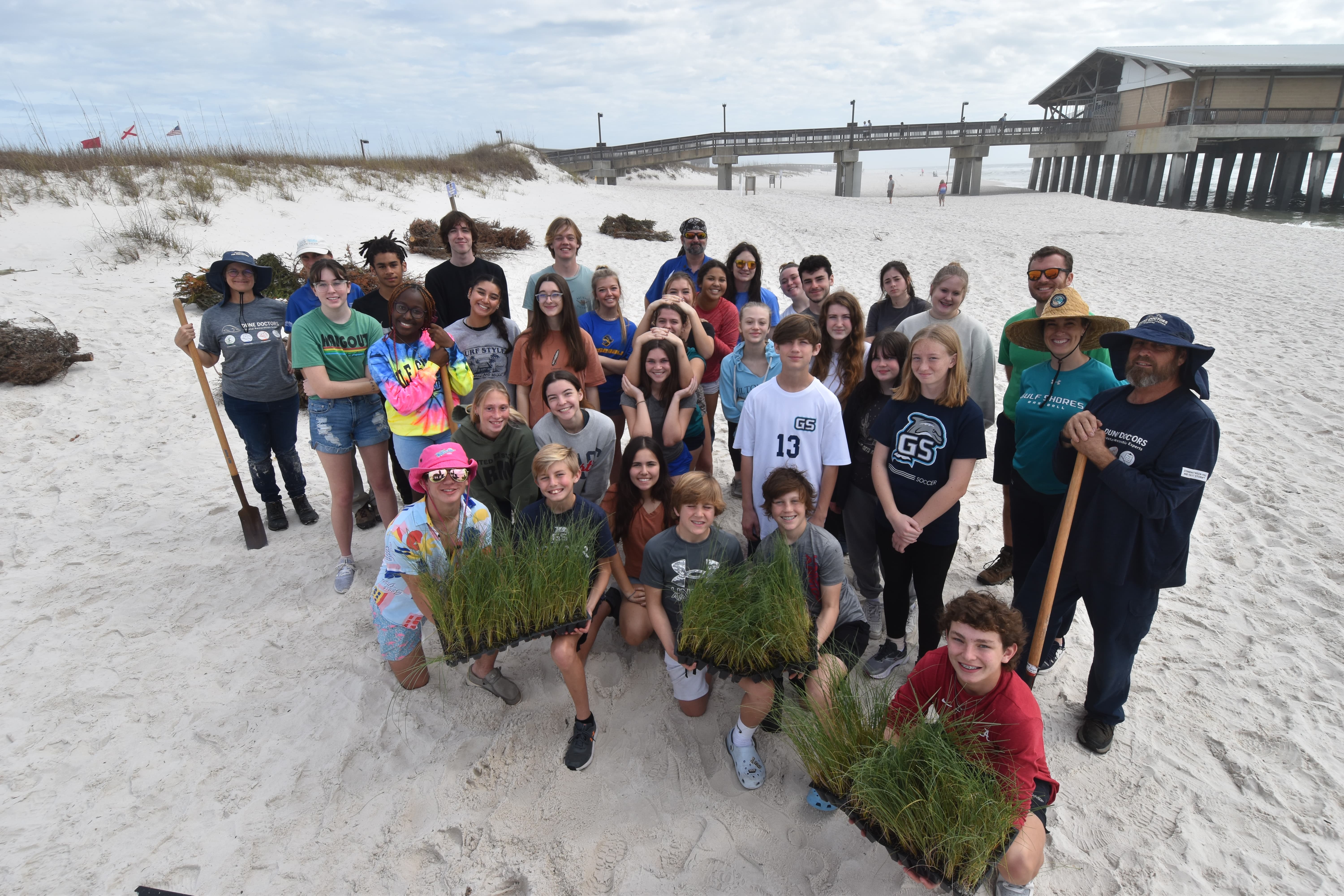
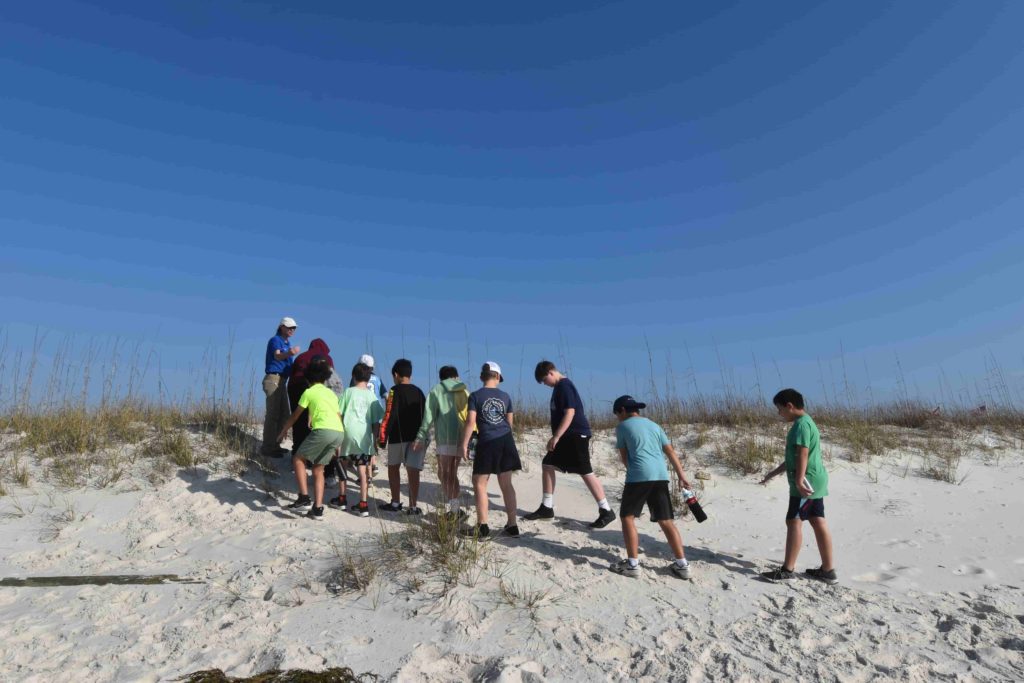
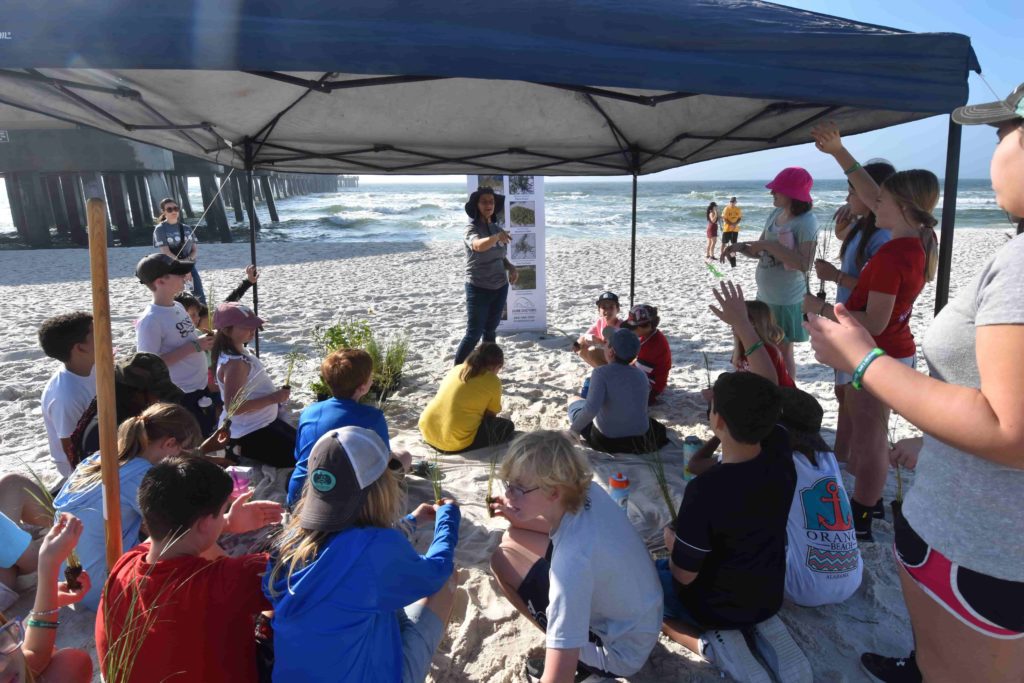
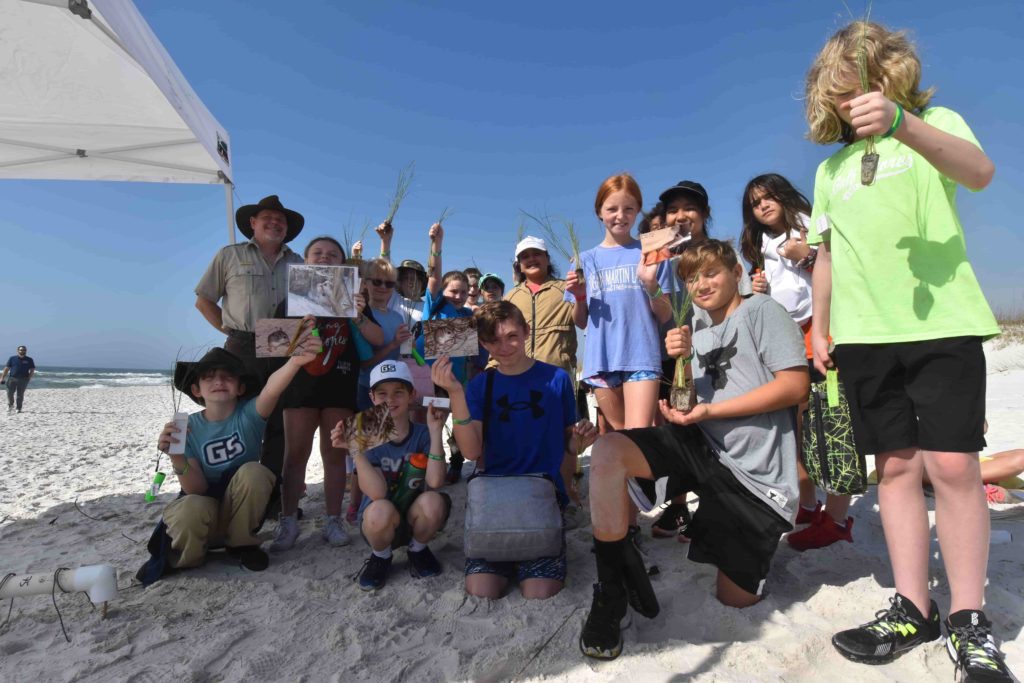
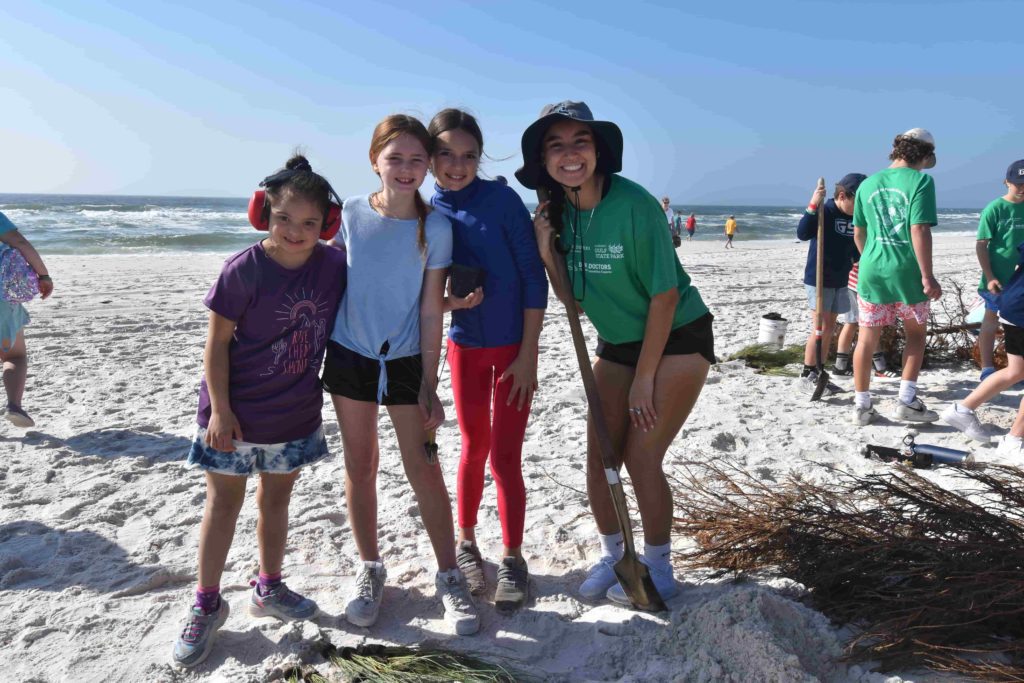
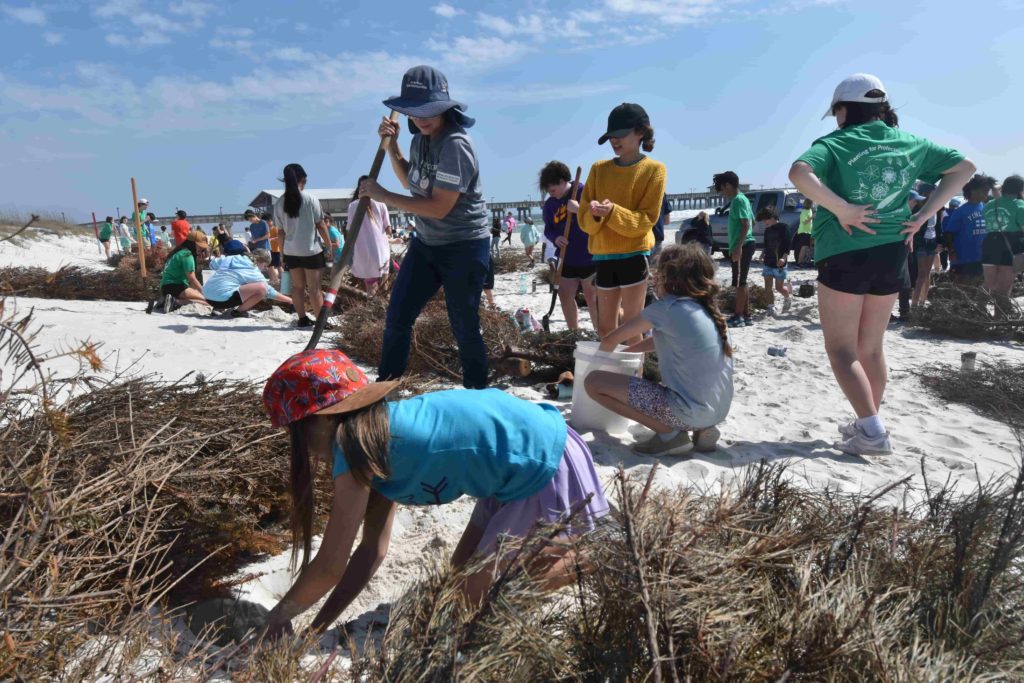
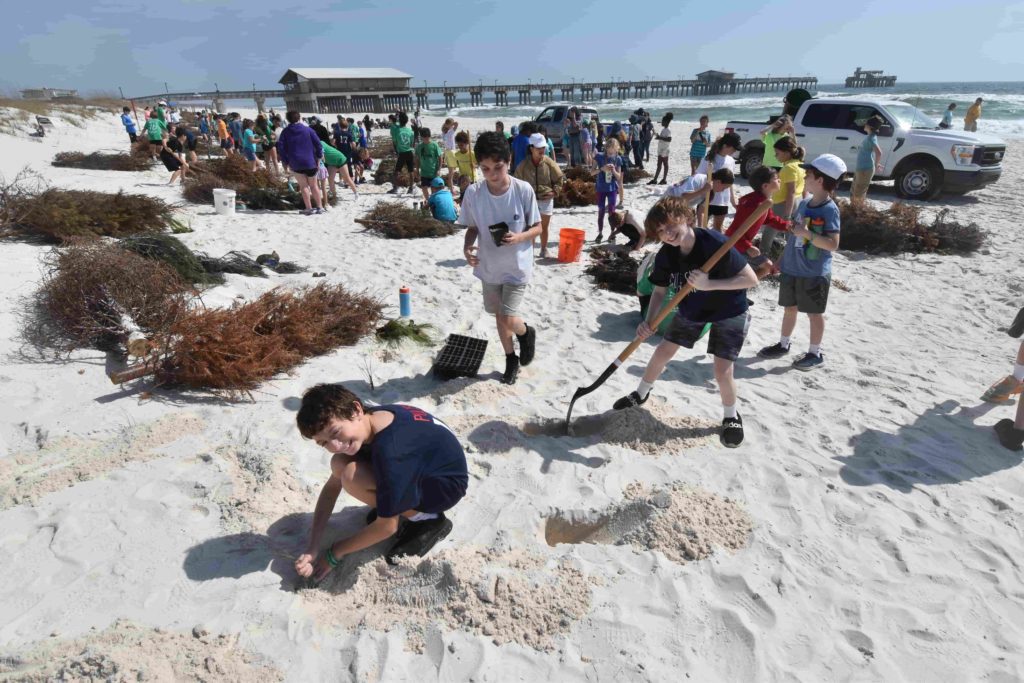
The dune restoration at Gulf State Park Pier marked the second year an elite group of students became P4P Mentors, an honorary designation. To become a P4P Mentor, middle and high school students first had to be nominated by their professors. Once selected, they received training from Dune Doctors and Gulf State Park Naturalists in the proper installation of native coastal plants before guiding younger students through the restoration.
“It’s hard work with specific instructions. Poor installation is the primary reason sea oats die. These plants can survive hurricanes, but if they’re planted incorrectly or stepped on, they may survive but will not flourish,” says Frederique Beroset, plant biologist and CEO of Dune Doctors. To prepare for the event, P4P mentors received training on how to install the plants and on how to mobilize a group. “A key factor for the event’s success hinges on how well the P4P mentors can keep their team engaged by delegating a steady rotation of tasks to their 5th graders, ” says Rick Martin, Operations Director for Dune Doctors.
What did Students Learn at the Planting for Protection Event?
To better understand the ecological impact of their work, 5th graders attended three classes about the dune ecosystem. Introducing the unique environment, Kelly Reetz, discussed how coastal dunes form and the ecological services they provide to people and wildlife. Kelly Reetz is the Gulf State Park Natural Resource Planner and manages nine unique coastal ecosystems that span 6,000 acres.
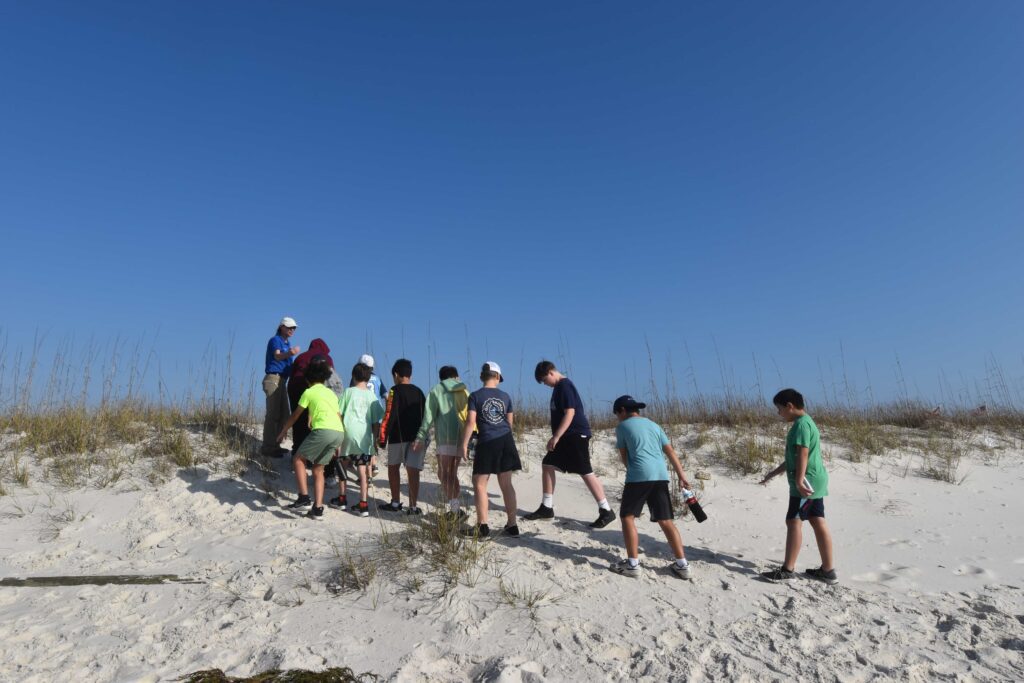
Frederique Beroset, plant biologist and CEO of Dune Doctors, focused her class on the native plants that anchor dunes in place by resisting the erosive forces of wind and waves. Beroset established Dune Doctors, a coastal restoration firm, in 2000 after years spent researching native coastal plants and developing protocols to grow underused species.

Bill Lynn, the Lead FWC Biologist for Alabama’s Beach Mice, taught the students about dune wildlife and showed them how he tracks the dune mice population throughout Baldwin County. Before they left, Bill thanked them on behalf of the animals “What you’re doing today will benefit not only the beach mice but also coastal birds and other wildlife. It’s amazing work. Thank you!”
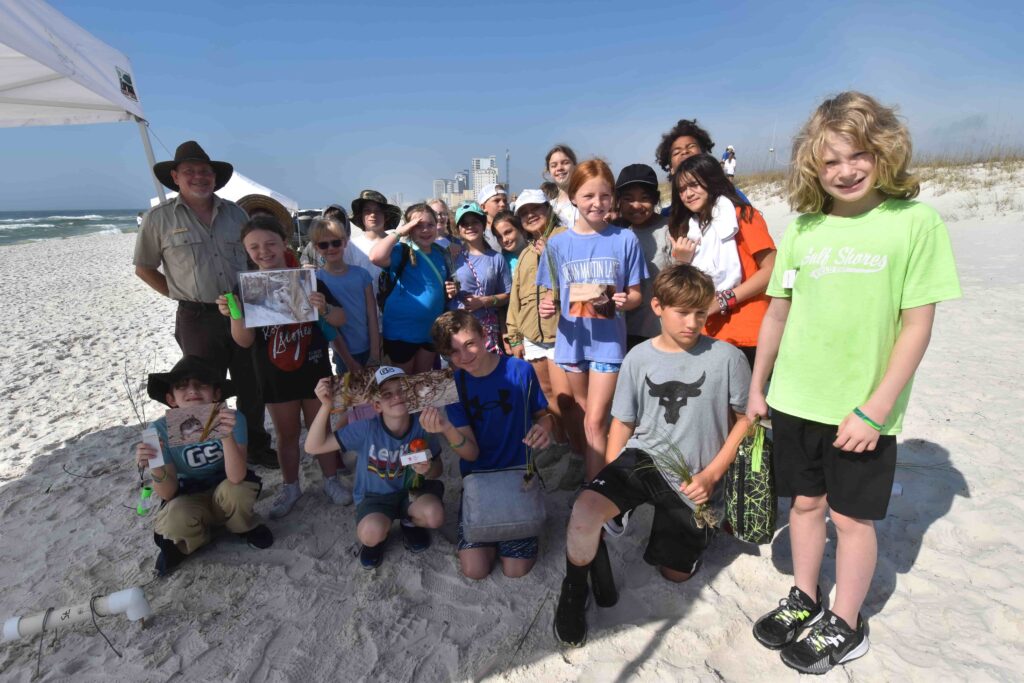
What do the Students who Participated Have to Say?
Despite the heat, 5th Graders rallied behind their P4P mentors. A general consensus among the kids revealed that their favorite part was digging in the sand followed second by the classes. They were surprised to learn just how tiny the Alabama beach mice are and vowed to protect their habitat by telling people to stay off the dunes. Between shovels, a group rehearsed cool facts they would later share with absent classmates.
Beyond the wildlife, the students also learned about the protective benefits for the people of Gulf Shores. Major, a middle school P4P Mentor, said, “the dune ecosystem is the only line of defense that can stop violent waters from coming into our city. The dune system helps stop the waves from destroying our wildlife, plants, and people.”
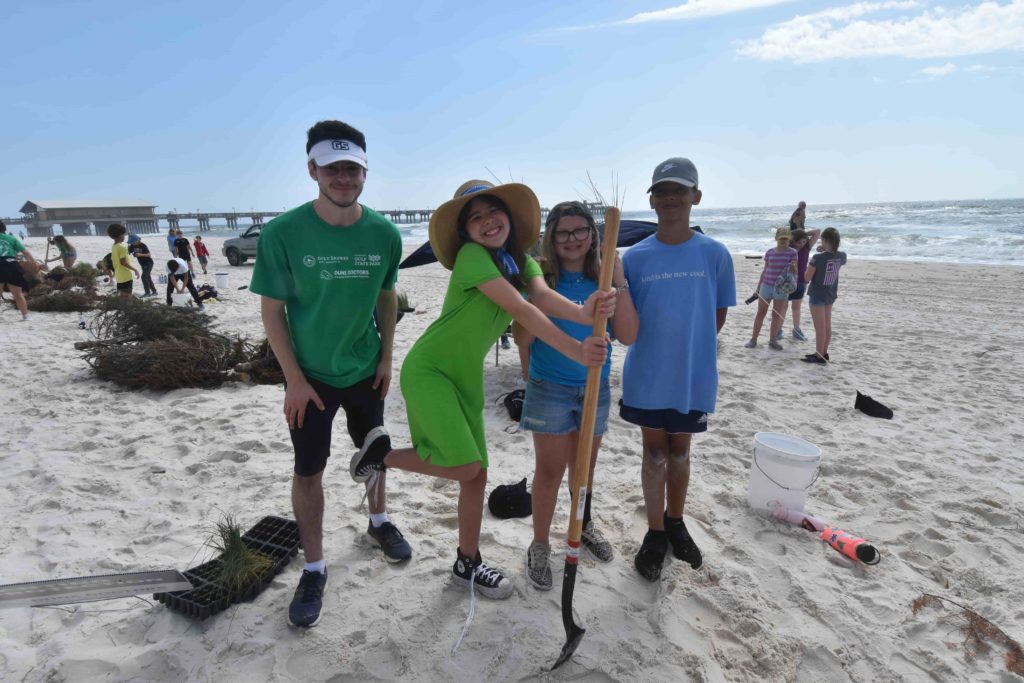
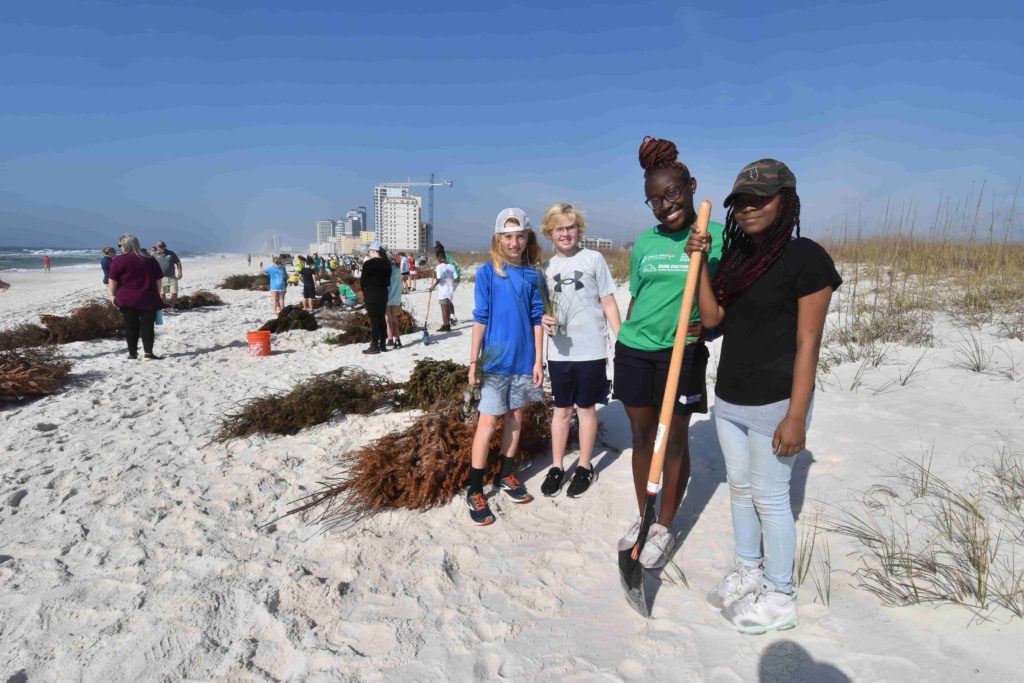
Kevin, a Gulf Shores Student Ambassador, seconded Major’s claim and said he hopes that through this event, the community of Gulf Shores can recognize how vital it is to invest in protecting the dune environment. Malicca, a P4P mentor attending a class on Gulf Shores’ hospitality industry, said she had fun guiding her younger students and took pride in restoring the area’s key economic driver: the native coastline.
How Does this Planting for Protection Event Benefit the Students of Gulf Shores City Schools?
The overarching goal of this Planting for Protection partnership is to help prepare the next generation of Coastal Stewards who will inherit the responsibility of preserving and protecting Gulf Shores. According to Jessica Sampley, the Gulf Shores High School Career Technician, the students develop a sense of ownership over their native environment after mixing their sweat and labor with the sand.
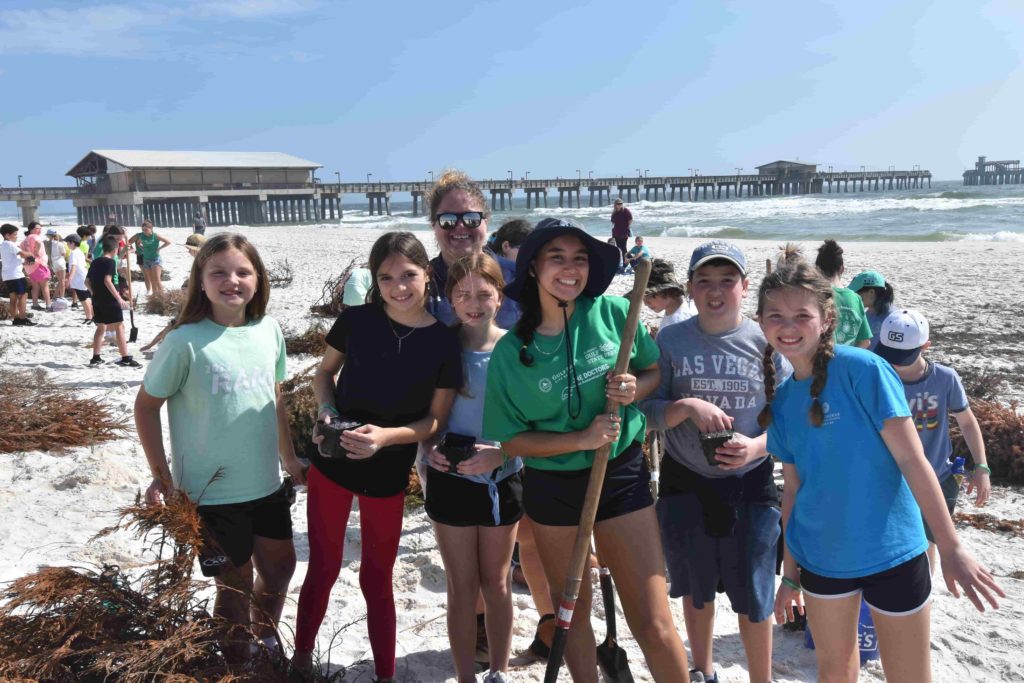
Middle School Life Sciences teacher Andrew Schaff says this event allows his students to see how their native ecosystems “are brought to life in a real-world setting” through a unique service-learning opportunity.
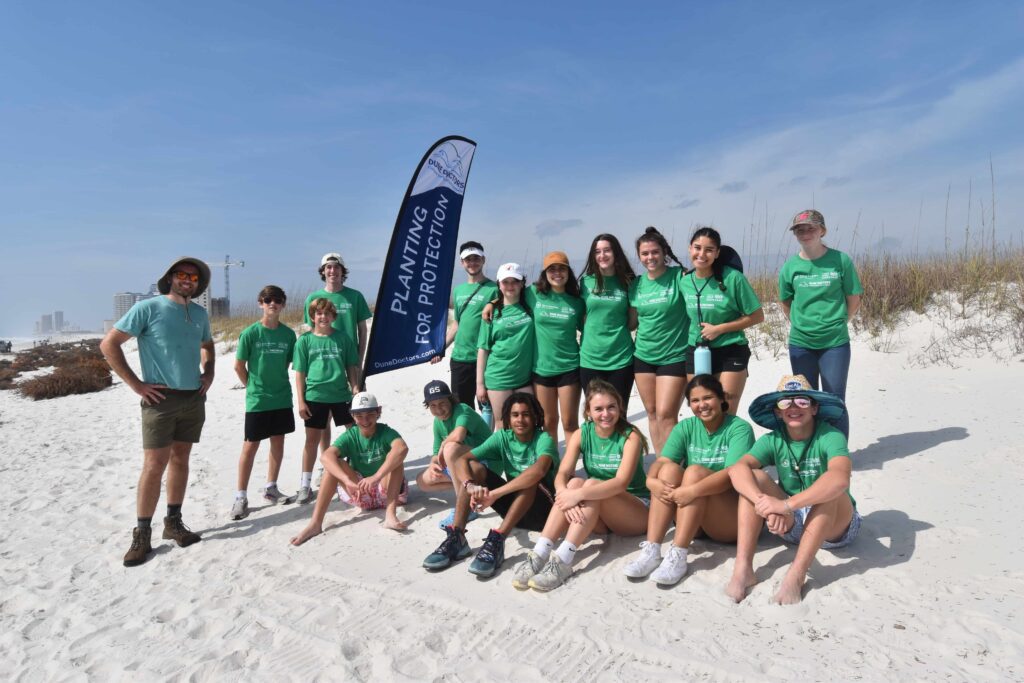
What is a Planting for Protection Event?
Planting for Protection (P4P) is Dune Doctors’ educational initiative designed to promote coastal resiliency through hands-on dune restoration. With over 23 years of experience, our coastal restoration experts share their expertise with students to help educate the next generation of Coastal Stewards.
Media Coverage of the 2023 Planting for Protection Event
WKRG News: “Gulf Shores students help re-plant and restore dune system”
NBC 15 News: “Gulf Shores Students Team Up With Dune Doctors to Combat Erosion”
